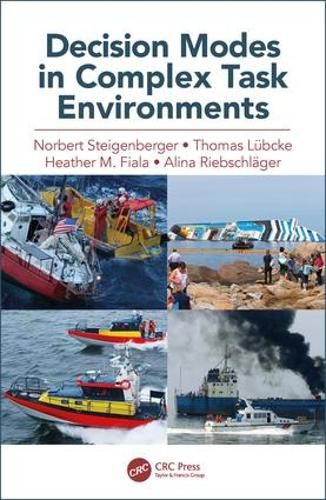Readings Newsletter
Become a Readings Member to make your shopping experience even easier.
Sign in or sign up for free!
You’re not far away from qualifying for FREE standard shipping within Australia
You’ve qualified for FREE standard shipping within Australia
The cart is loading…






Despite intense research on decision-making in action, we still know little about when decision-makers rely on deliberate vs. intuitive decision-making in decision situations under complexity and uncertainty. Building on default-interventionist dual-processing theory, this book studies decision-making modes (deliberate vs. intuitive) in complex task environments contingent on perceived complexity, experience, and decision style preference. We find that relatively inexperienced decision-makers respond to increases in subjective complexity with an increase in deliberation and tend to follow their decision style preference. Experienced decision-makers are less guided by their decision preference and respond to increases in subjective complexity only minimally. This book contributes to a developing stream of research linking decision-making with intra-personal and environmental properties and fosters our understanding of the conditions under which decision-makers rely on intuitive vs. deliberate decision modes. In doing so, we go one step further towards a comprehensive theory of decision-making in action.
$9.00 standard shipping within Australia
FREE standard shipping within Australia for orders over $100.00
Express & International shipping calculated at checkout
Despite intense research on decision-making in action, we still know little about when decision-makers rely on deliberate vs. intuitive decision-making in decision situations under complexity and uncertainty. Building on default-interventionist dual-processing theory, this book studies decision-making modes (deliberate vs. intuitive) in complex task environments contingent on perceived complexity, experience, and decision style preference. We find that relatively inexperienced decision-makers respond to increases in subjective complexity with an increase in deliberation and tend to follow their decision style preference. Experienced decision-makers are less guided by their decision preference and respond to increases in subjective complexity only minimally. This book contributes to a developing stream of research linking decision-making with intra-personal and environmental properties and fosters our understanding of the conditions under which decision-makers rely on intuitive vs. deliberate decision modes. In doing so, we go one step further towards a comprehensive theory of decision-making in action.